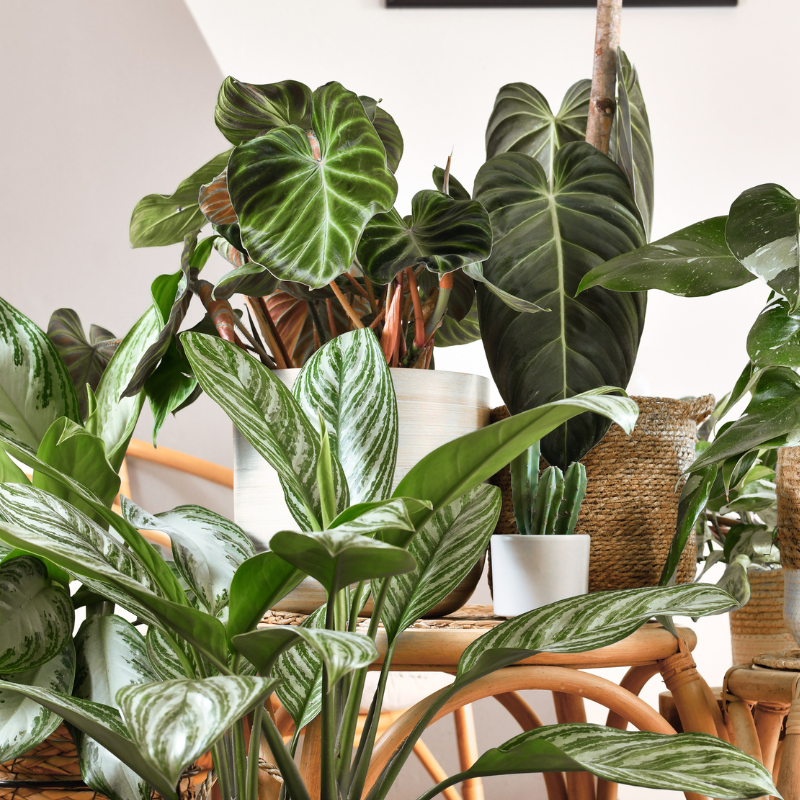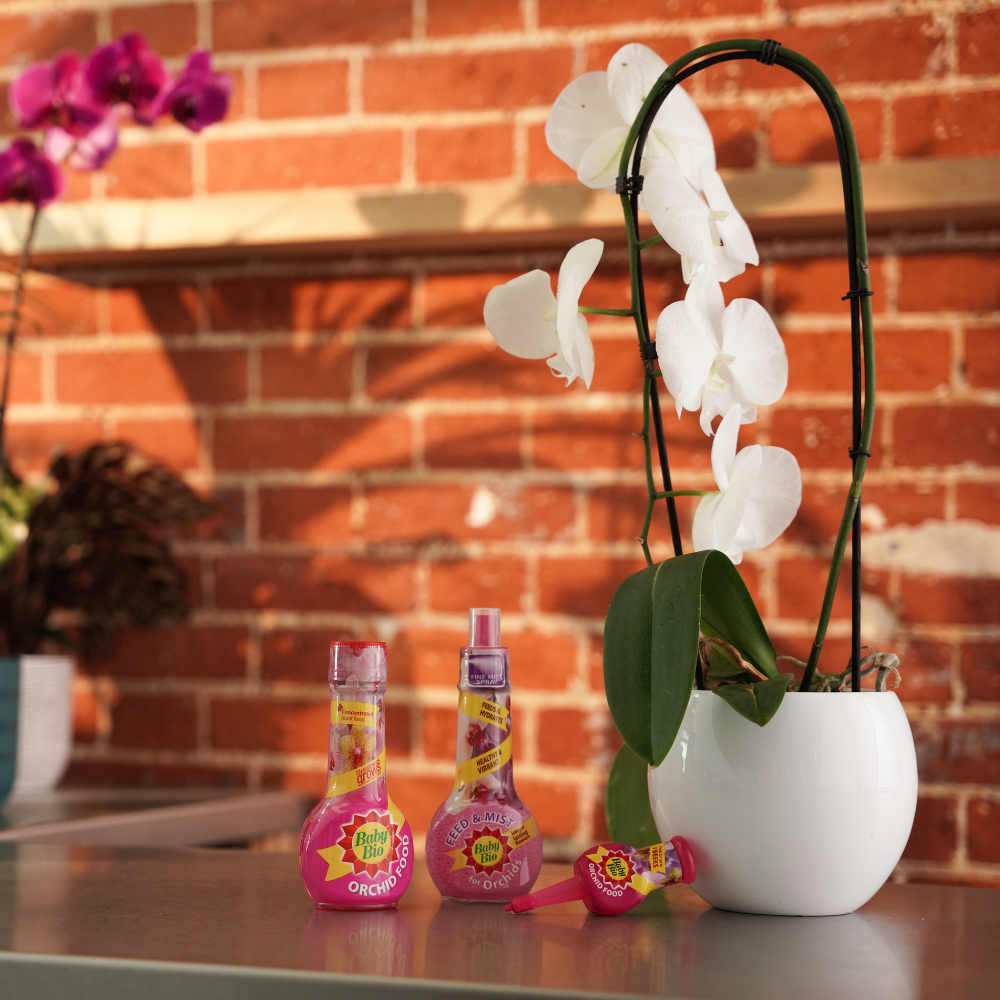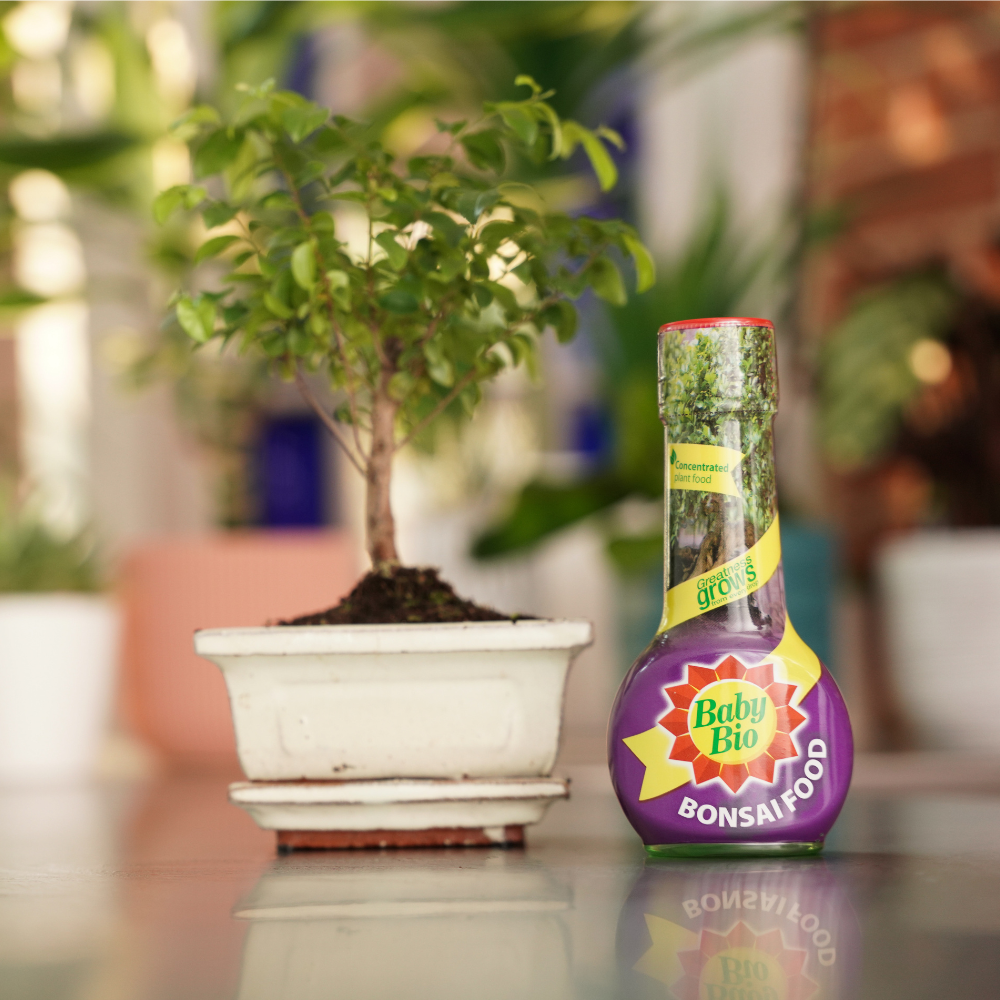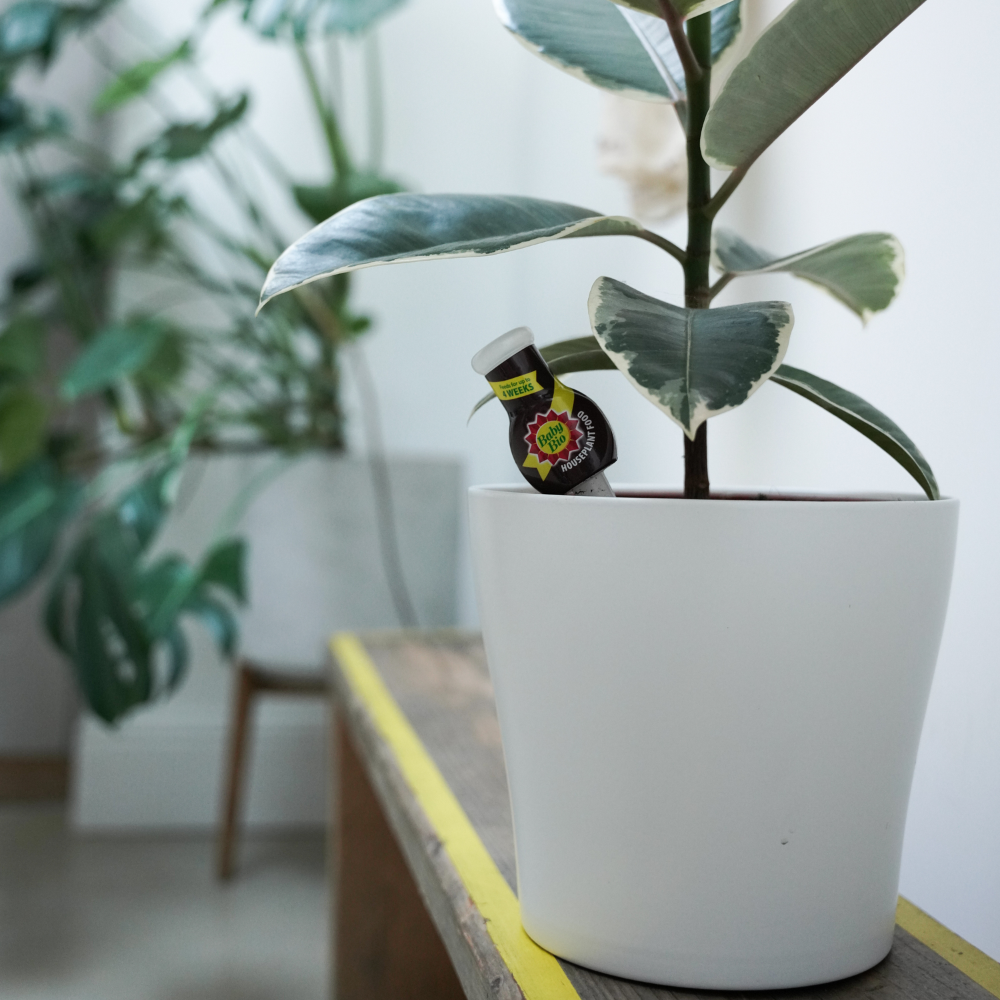
Tips for succulents & cacti
Many houseplant novices believe succulents and cacti are the easiest plants to care for, but that is often not the case! These plants require lots of sunlight which may not be available, and are very sensitive to overwatering, so they can be easily killed. In winter, you can reduce watering to as little as once every three to four weeks, and if in doubt wait one more day! Most succulents prefer slightly acidic soil, so using a specific cacti feed like Baby Bio® Cactus Food is essential for maintaining the right soil conditions to help your plant flourish. Be sure to rotate your plant regularly to avoid them leaning to one side as they search for sunlight.
Tips for your orchids
These beautifully delicate houseplants have been a firm favourite in households for years thanks to their bright, long-lasting blooms which can last for months, yet most orchid-owners will admit that getting their plants to repeat bloom can be extremely difficult. Orchids have specific requirements and therefore must be treated carefully! Their nutritional needs are unique and need fertilizing both when in bloom and dormant – we recommend using an orchid feed like Baby Bio® Orchid Food with every water for the brightest blooms. Once your plant’s flowers have fallen, you can encourage it to rebloom the following season by pruning the whole flower stem and continuing to feed throughout the year. Most orchids naturally grow high up in the rainforest tree tops rather than soil, so prefer to be potted in specific orchid compost which promotes aeration and drainage to prevent becoming waterlogged.

Tips for you bonsai
Bonsai trees are notoriously difficult to care for, but there’s no need to feel intimidated when it comes to caring for yours! The key is to provide a stable temperature throughout the year – do not position them in draughty spots or by direct heat sources like radiators. They also require plenty of humidity to keep their soil moist, so invest in a mister and give them a fine spritz twice a week, or alternatively place your bonsai on a tray of pebbles and water to increase humidity through evaporation. Like orchids, bonsais are a specialist plant and require the right balance of nutrition for steady growth – general houseplant feed can be too strong and scorch roots, so always use a specialist feed like Baby Bio® Bonsai Food.

Tips for glossy, shiny houseplant leaves
As well as making sure your plant has the right amount of water, fertiliser and sunlight, it is important to take good care of those leaves, too! Keeping the dust of leaves not only looks more attractive but helps maximise the light reaching the plant and encourages more growth. Particularly when it comes to plants with large, rubbery leaves like a Monstera, it is important to gently dust leaves regularly with a damp cloth to remove any dust that has gathered. Incorporate a leaf shine product, such as Baby Bio® Leaf Shine, into your regime and simply spray over the surface of each leaf for an even shinier finish.
Check out more houseplant care tips in the video below!
Watering tips
Many houseplant guides advise plant parents to water once a week, but this can lead to overwatering – the most common killer of houseplants! Indeed, most houseplants lie dormant throughout the autumn/winter months, so require significantly less water and feed. Instead of sticking to rigid water regime, insert your finger or a pencil into the top two inches of the soil – if this is still moist, there is no need to water! If it feels dry, aerate the soil to allow for an even distribution and use tepid water, or water from the bottom if your pot has drainage holes. If you’re likely to forget to fertilise your plant, drip feeders such as Baby Bio® Drip Feeders are excellent to ensure they get the right amount of feed throughout the month.

Treating houseplant pests
Bugs are a common problem for houseplants, just as they are for outdoor plants. However, there are some steps you can take to prevent pesky pests from taking over your beloved houseplants.
For gnats, the best way to do this is to water plants from the bottom so that the top of the compost remains dry – this stops the eggs being laid. As well as a moist top layer of soil, pests are also attracted to decaying plant material so make sure you remove any dead leaves regularly.
If you are faced with a pest problem from other bugs like greenfly or blackfly invest in a bug killer like Baby Bio® Houseplant Bug Killer and spritz generously to the affected plant, avoiding delicate blooms, for fast acting results. Repeat this every 10 to 14 days to ensure any hatched eggs are treated, too.
Watch the video below for more ways to prevent and treat pests on your houseplants.